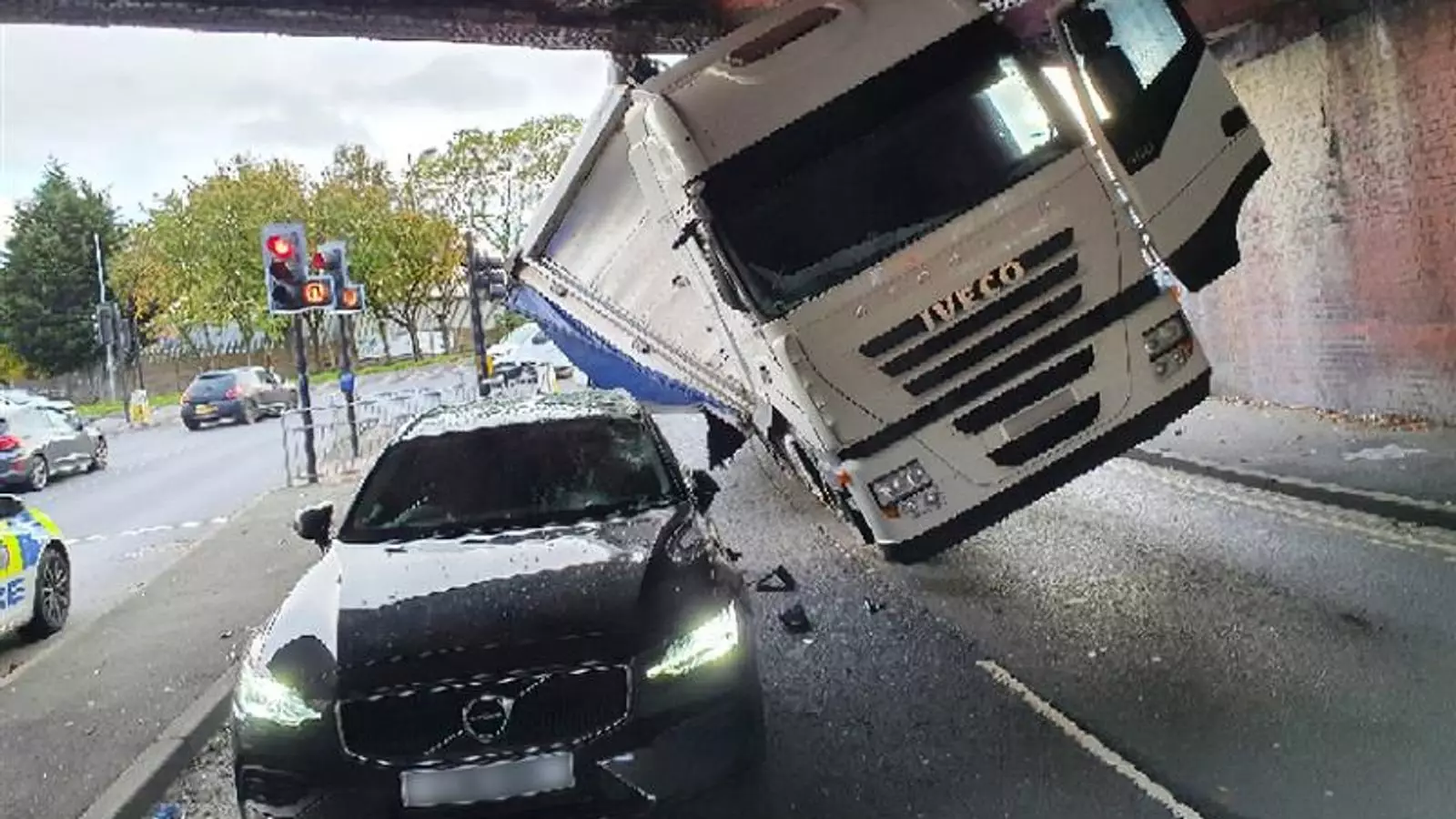In recent times, the growing issue of uninsured drivers on UK roads has sparked vital conversations about road safety and accountability. Ian Lee’s story is a testament to the real dangers presented by these negligent motorists. A 60-year-old resident of Wakefield, West Yorkshire, he had an unfortunate encounter with a stolen lorry that not only left his car severely damaged but also posed a significant risk to his life. Ian was merely traveling home when a reckless driver behind the wheel of a stolen vehicle slammed into his car with cloning number plates, leaving him struck by an “almighty crash.” The violent impact transformed his journey into a nightmare, as shards of glass littered the passenger seat and dashboard of his vehicle.
The worst part is that the driver of the stolen lorry fled the scene on foot, illustrating a stark and growing trend of indifference among certain drivers toward their responsibilities on the road. Ian’s ordeal didn’t end with the crash; he sustained a shoulder injury requiring multiple injections over months and continues to grapple with lingering pain. Reflecting on the incident, Lee expressed, “When I look back, actually I was really, really lucky to get out of that one.” His experience raises critical questions about the implications of uninsured driving in our society.
The Scope of the Problem: Uninsured Driving Statistics
According to recent data released by the Motor Insurers’ Bureau (MIB), the reality is troubling: every 20 minutes, someone in the UK is impacted by an uninsured or hit-and-run driver. To shed light on this escalating concern, the MIB has identified the hotspots where uninsured driving is most prevalent. The information reveals a troubling trend, with several areas in the West Midlands recognized as the worst offenders. Birmingham alone accounted for a staggering number of uninsured driving incidents.
The list of the top 15 postal hotspots showcases the alarming geographic distribution of these incidents. Areas like Wolverhampton, North Tyneside, and even the densely populated zone of Croydon come into focus, indicating that no region is immune to the dangers posed by uninsured drivers. It’s sobering to think that such negligence can have long-lasting, devastating impacts not only on victims but also on the economy, with estimated costs of £2.4 billion annually due to emergency services, medical care, and loss of productivity.
Efforts to Combat the Situation: Operation Drive Insured
In response to this escalating crisis, the MIB has initiated Operation Drive Insured, a campaign aimed at removing uninsured drivers from British roads. Collaborating with various police departments, this operation is vital for bolstering public safety measures and promoting accountability. With nearly 115,000 uninsured drivers facing vehicle seizures this year alone, the campaign seeks to act as a deterrent against reckless driving behaviors. Such measures can serve as a crucial turning point in how society handles the issue.
It’s noteworthy that uninsured drivers are not only met with severe penalties, including fixed penalty notices and points on their licenses, but they also face the risk of having their vehicles seized by law enforcement. In fact, about one-third of these seized vehicles end up being crushed, reinforcing the message that uninsured driving is unacceptable and comes with heavy consequences.
The alarming statistics surrounding uninsured driving emphasize the urgency with which communities must address this issue. Each incident like Ian Lee’s reminds us of the personal and economic toll that such negligent actions can inflict. Ensuring road safety is a collective responsibility that requires vigilance from all motorists and proactive measures from law enforcement and governing bodies.
Moving forward, it is essential that drivers understand the importance of having proper insurance coverage and comply with traffic laws. Support for initiatives like Operation Drive Insured is critical in holding uninformed or reckless drivers accountable. Only through concerted efforts can the roads become safer for all, reducing the risk of harrowing experiences like those endured by Ian Lee and countless others.

Leave a Reply